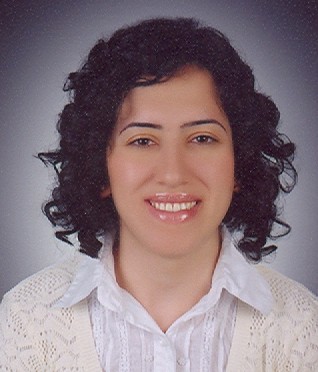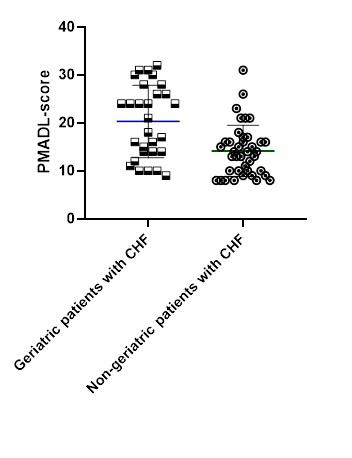A COMPARISON OF DISEASE-SPECIFIC FUNCTIONAL LIMITATIONS BETWEEN GERIATRIC AND NON-GERIATRIC PATIENTS WITH CONGESTIVE HEART FAILURE: CROSS-SECTIONAL STUDY
- Original Article
- Published on November 27 2023
 Ebru Çalık Kütükçü
Ebru Çalık Kütükçü
 Nurel Ertürk
Nurel Ertürk
 Havva Ezgi Albayrak
Havva Ezgi Albayrak
 Gülay Uzun
Gülay Uzun
 Muhammet Raşit Sayın
Muhammet Raşit Sayın

Purpose: Reports in patients with chronic heart failure (CHF) demonstrate that nearly 60% of patients experience difficulty in one or more activities of daily living (ADLs), and functional inability is related with a worse prognosis. The purpose of this retrospective study was to compare disease-specific functional limitations between geriatric and non-geriatric patients with CHF.
Method: Sixty-eight patients with CHF were divided into two groups as geriatric (age≥65 years, n=29, group I) and non-geriatric (age<65 years, n=39, group II). The level of difficulty during ADLs was assessed using the Performance Measurement-8 Questionnaire for Activities of Daily Living (PMADL-8) and the disease specific health status using the Chronic Heart Failure Questionnaire (CHQ).
Results: The PMADL-8 scores of patients with CHF in group I were significantly higher than those in group II (p=0.001). The CHQ dyspnea scores of patients in group I were lower than those in group II (p=0.024). The scores of the CHQ fatigue, emotional status, mastery subdimensions, and total scores were similar between groups (p>0.05).
Discussion: Geriatric patients with CHF have greater disease-specific functional limitations during daily life and poorer disease-related quality of life compared with their non-geriatric counterparts. Rehabilitation experts must pay special attention in the geriatric CHF group, with an emphasis on functional limitation during daily activities.